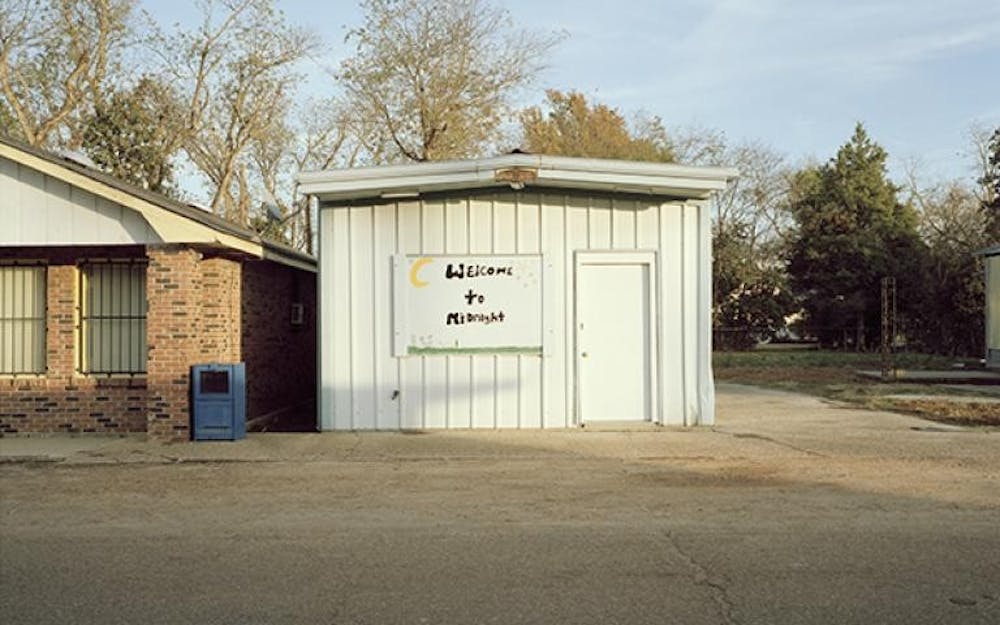
How do we remember our history?
What is memory? How do we memorialize? What is chosen to be remembered and what is allowed to decay? All of these are questions that Jessica Ingram sought to answer and educate about in her new book, Road Through Midnight: A Civil Rights Memorial.
I had the opportunity to learn about this book and listen to Ingram speak about it at UNC Library’s new “Off the Shelf” series, which is a “collaboration between the University Libraries and UNC Press to present new works on racial and social justice in our history and our world.” Jessica Ingram’s presentation is co-sponsored by the Center for Documentary Studies at Duke University. The next event in this series is on Sept 17.
The American South has a long and complex history of resilience and destruction; however, which history is remembered is a more difficult matter. Much of it has been overgrown and largely forgotten by the majority of its residents. After nearly fifteen years of work, Jessica Ingram’s new book aims to tell some of the stories of the South. With Road Through Midnight, Ingram seeks to memorialize the stories of oppression, violence and hope that she came across as she worked across the southern United States.
The book’s central premise is simple. It wants to share the stories and trauma that people of color experienced throughout the South through photography and an archive of primary source documents. Many pivotal locations of the Civil Rights Movement are overgrown or unmarked. Ingram traveled throughout the South, interviewing descendants and family members of the victims she was to memorialize while photographing the locations where these harrowing events took place. For example, Ingram tells the story of Vernon Dahmer, a prominent Mississippi civil rights activist, who was murdered by the KKK in 1966 for registering other Black Americans to vote. In his memorial, she includes photographs of the spot where his house once stood, before it was burnt down by Klansmen.
The question of who and what is deserving of memorialization is a precarious subject in America, especially regarding Southern history. Regardless, Ingram is unwavering in her belief that the memorials of trauma and progress are the monuments that should be respected and funded today.
When asked about Confederate Monuments and their role in the South’s history, Ingram stated that we “have to work against racism in all of its forms,” and that it can be very “restorative to rip a [racist monument] down.” She stressed just “how important… a memorial is” in how we view our history, as what we remember is driven by what we display.
Ingram herself grew up in Nashville, Tennessee, where from a young age, she saw the statue of a confederate general and first grand wizard of the KKK, Nathan Bedford Forrest. Growing up with a symbol of the confederacy and racist violence in one’s hometown is a commonality in many parts of the South, yet many of the important sites that Ingram details in Road Through Midnight do not even have a plaque, let alone a twenty-five-foot statue.
Unquestionably, the traumas and horrors of racial violence and injustice are not remnants of America’s distant past. Just this past August, the horrific video of Jacob Blake being shot in the back seven times by a police officer in Kenosha proves that the issues of racial justice and systemic racism are as prevalent now as they have ever been. In light of this, Road Through Midnight may offer some insight into where we have been as a nation and what the histories of today’s problems look like. Ingram draws a comparison between figures memorialized in her book and contemporary victims of racial violence, pointing out the stark parallels between Breonna Taylor and Vernon Dahmers, or between Trayvon Martin and Isaiah Moore. Ingram believes that by changing who and what we memorialize, we can begin to educate ourselves and confront the American culture of systemic racism.
Ultimately, as Duke students, in a state with a Confederate past, we have a duty to understand the history of where we live and work. There are nondescript sites scattered throughout the South that one might never give a second glance, yet these sites are critically important in the American narrative of racial injustice. The visceral stories told in Road Through Midnight serve as important capsules of emotion and trauma, critical for our understanding of the United States’s complex history.
Ingram hopes that her Road Through Midnight will do more than educate. At the very least, she wants to inspire her audience to take action and work to dismantle the systems of racial injustice that continue to exist in this nation today.
Get The Dirt
Subscribe to our weekly email about what's trending at Duke
"story" - Google News
September 02, 2020 at 11:00AM
https://ift.tt/32MgX7E
Jessica Ingram's “Road Through Midnight” tells the story of the American South's complicated past - Duke Chronicle
"story" - Google News
https://ift.tt/2YrOfIK
https://ift.tt/2xwebYA
Bagikan Berita Ini














0 Response to "Jessica Ingram's “Road Through Midnight” tells the story of the American South's complicated past - Duke Chronicle"
Post a Comment